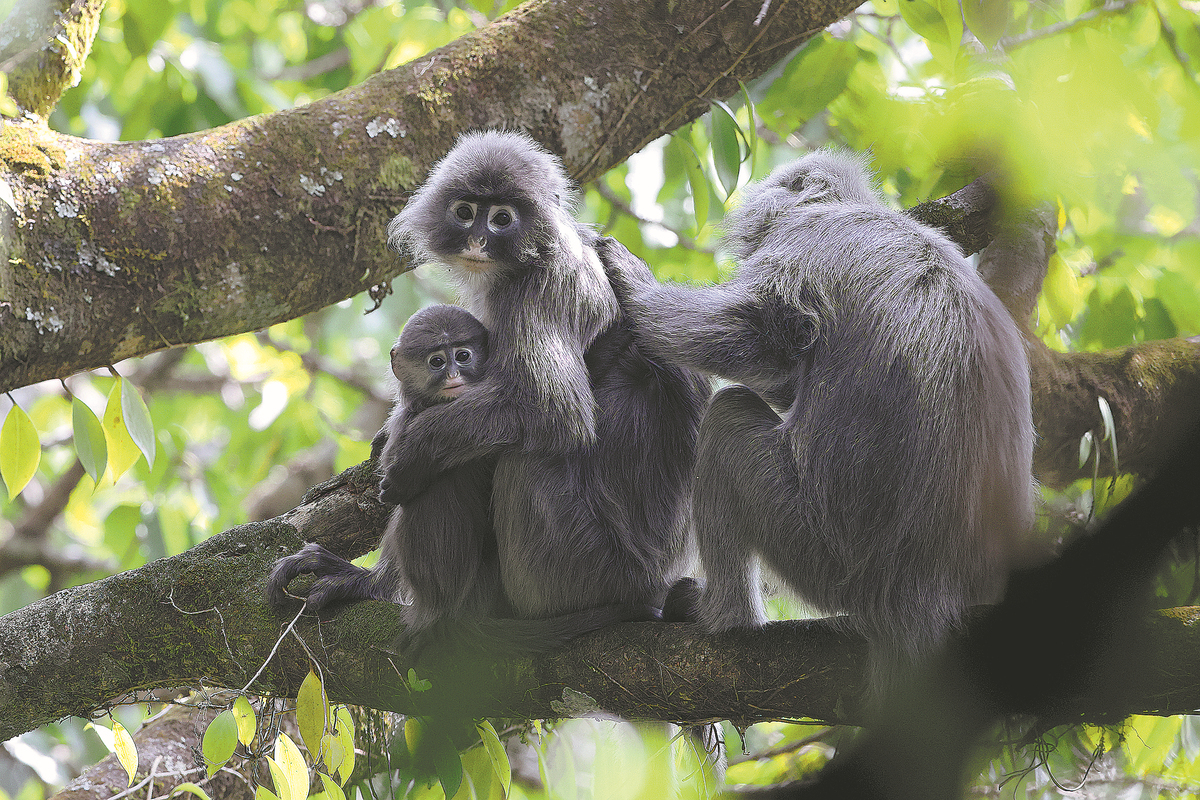Yunnan villagers make the most of monkey business
Guiding photographers into forest to snap shots of endangered langurs can be lucrative. Chen Liang reports.

Editor's Note: As protection of the planet's flora, fauna and resources becomes increasingly important, China Daily is publishing a series of stories to illustrate the country's commitment to safeguarding the natural world.

As December arrived, Huang Qibang and his wife Wang Juxiang looked forward to a bustling time in their village in the southwestern part of Yunnan province.
They prepared to welcome a stream of photography enthusiasts to Yangguang village, Mangshi, with the seasonal influx expected to continue until the end of April and provide a significant source of income for the couple.
"They come to capture images of the monkeys," Wang said. "Baby monkeys are usually born in December. They look golden and adorable and are a major draw for visiting photographers."
The monkey is the Phayre's leaf monkey (Trachypithecus phayrei), also known as Phayre's langur.
They are predominantly found in the tropical, deciduous and evergreen forests of northeastern India, eastern Bangladesh and Myanmar. In China, they are found only in the southern and southwestern parts of Yunnan.
Within the confines of Mangshi, a city close to the border with Myanmar, a patch of forest spanning approximately 1,600 hectares serves as a sanctuary for over 500 Phayre's leaf monkeys, making it the most accessible location in the country to observe the endangered species, which is on the International Union for Conservation of Nature's Red List of Threatened Species. Hunting and loss of habitat are two major factors threatening the species.
Outsiders need the assistance of locals such as Huang and Wang to locate the langurs in their natural habitat.
"We are among the few monkey guides in the village," Huang said. "For most people hoping to observe them in the wild, our services are essential."























